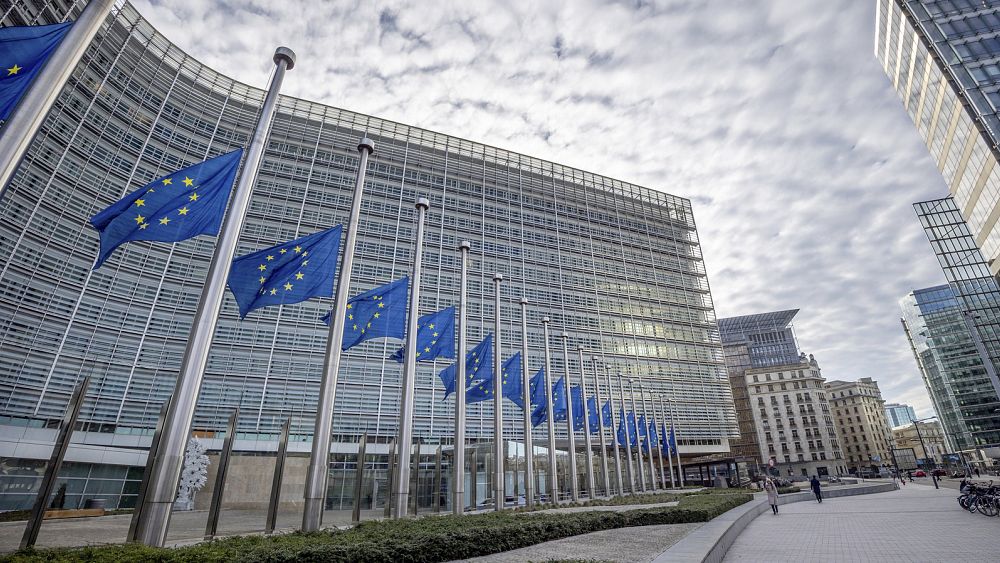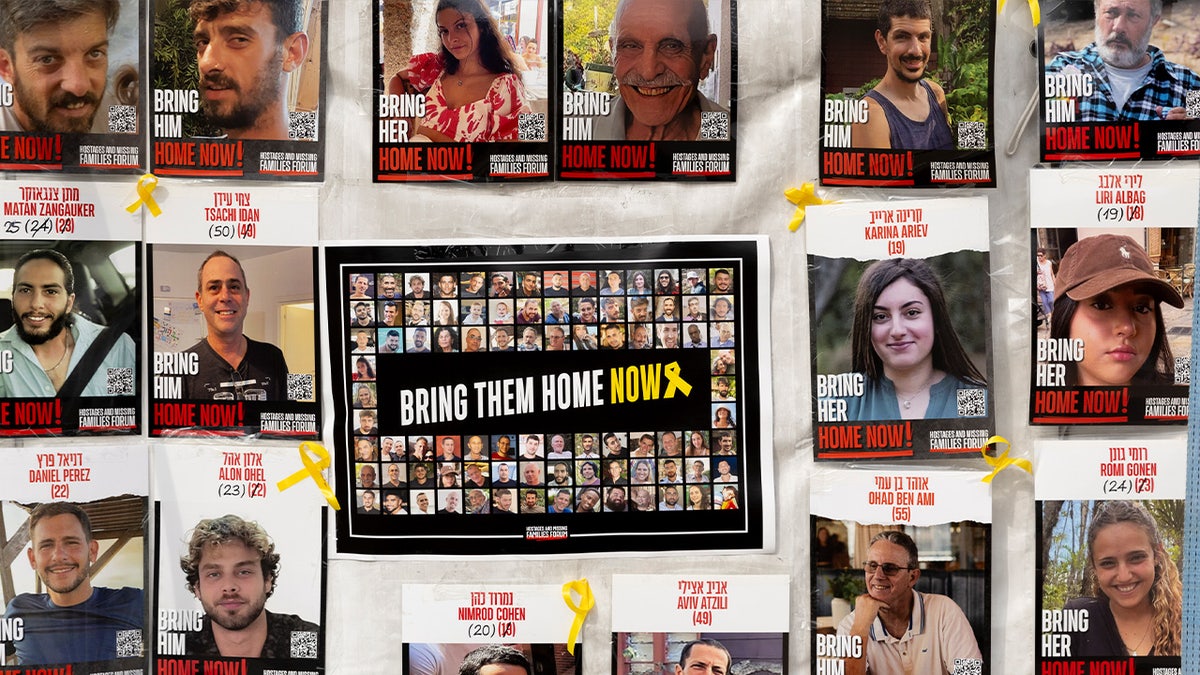World
Tech companies spend more than €100 million a year on EU lobbying

Tech companies’ lobbying in Brussels has increased to €113 million a year as efforts to influence the EU’s digital policy intensify, according to new data published on Monday by NGOs Corporate Europe Observatory (CEO) and LobbyControl.
The latest figures reveal that 651 companies and associations collectively spend more than €113 million a year on EU digital lobbying, up by 16.5% from €97 million in 2021.
The top 10 digital corporations alone account for more than a third of the total spending on lobbying at €40 million.
Landmark EU legislation to curb the power of Big Tech – the Digital Markets Act (DMA) and Digital Services Act (DSA) – and the bloc’s new AI rulebook are prompting technology companies to intensify their lobbying power, CEO and LobbyControl say.
Both NGOs are calling for stricter lobbying rules to address the disproportionate influence of the tech sector.
The analysis is based on the annual declarations made by companies in the EU’s Transparency Register. The data therefore only paints part of the bigger picture, as it excludes lobbying activities carried out by consultancies on behalf of corporations.
“Money should not buy access and influence to EU decision-making, but that seems to be exactly what these digital giants are aiming for,” Bran Vranken of Corporate Europe Observatory said.
“Their lobbying not only threatens to fatally water down crucial legislation such as the Artificial Intelligence Act, but also undermines democratic decision-making.”
Lobbying EU regulators is becoming the “preferred tool” for tech companies to address increasingly demanding EU digital regulation, according to Alberto Alemanno, Jean Monnet Professor of European Union Law at HEC Paris and the founder of The Good Lobby.
“Big Tech’s lobbying differs from other corporations’ as it is characterised by overspending and aggressive tactics,” Alemanno said.
“These companies leverage their expertise by showing off their epistemic primacy – the message being ‘we know best how the technology works, let us worry about it and we promise we will keep you protected’,” he added.
Meta has biggest Brussels lobbying bill
Meta, formerly Facebook, is the biggest lobbying spender at €8 million a year, up from €5.75 million in 2021.
It is closely followed by Apple, which doubled its lobbying spending to €7 million from €3.5 million in 2021.
The top 6 lobby spenders in Brussels are:
- Meta, €8 million
- Apple, €7 million
- Bayer, €6 million
- Google, €5..5 million
- Shell, €5.5. million
- Microsoft, €5 million
Meta also has the highest number of lobbyists on the ground in Brussels, with 17.05 full-time equivalents (FTEs), followed by Huawei (11 FTEs), Intel (10 FTEs) and IBM (7.25 FTEs).
Google, Amazon and Apple have also increased their lobbying workforce in Brussels since 2021.
Of all the companies lobbying the EU on digital policy, 20% are based in the US, while fewer than 1% have their headquarters in China or Hong Kong. Whilst Chinese tech companies TikTok (€900,000) and Alibaba (€600,000) are investing in EU lobbying, their budgets remain far behind those of their US counterparts.
Two companies with their headquarters in the EU have also broken into the top 10 spenders this year. Spain’s Telefonica has upped its annual spending since 2021 from €1.5 million to €2 million, while Germany’s Deutsche Telekom has doubled its spending from €1 million to €2 million.
According to the NGOs, the growth in overall lobbying spending and the increase in market concentration for the tech industry are worrying.
“Big Tech in particular has a disproportionate number of opportunities to influence policy in their favour due to their enormous resources,” Verena Leyendecker of LobbyControl said.
“We need stricter rules for lobbying in Brussels, but also an ambitious enforcement of the EU’s Digital Markets Act (DMA) and Digital Services Act (DSA). The DMA and the DSA offer ways to limit the power of Amazon & Co.,” she added.

World
Trump plans crypto-friendly orders in first few days in power

World
Israel says cease-fire begins after 3-hour delay over list of hostage names

Israel confirmed late Sunday morning a long-awaited cease-fire has gone into effect after a three-hour delay caused by Hamas not releasing the names of the three hostages it plans to release.
The agreement was set to go into effect Sunday at 8:30 a.m. local time, but was delayed until 11:15 a.m. local time. Jerusalem is seven hours ahead of Eastern time.
Israeli Prime Minister Benjamin Netanyahu held a security situation assessment over the delay in receiving the list of hostages who are expected to be released Sunday morning as part of a cease-fire agreement with Hamas, which eventually provided the names.
Hamas said a couple of hours after the agreement was scheduled to go into effect that it would be releasing hostages Romi Gonen, 24, Emily Demari, 27, and Doron Steinbrecher, 31, on Sunday. Israel confirmed it has received the names. The hostages are expected to be released later Sunday.
Earlier, Netanyahu told the Israeli Defense Forces that the cease-fire would not begin until Israel had the list of hostages expected to be freed. Since Hamas had not given the names of the hostages by the time the cease-fire was set to start, the IDF continued to operate, as it was still striking inside Gaza. At least eight Gazans have been killed in IDF strikes since the cease-fire was set to begin, according to a Hamas-run agency.
“As of this morning, Hamas has not fulfilled its obligation, and contrary to the agreement, has not provided the State of Israel with the names of the returning female hostages up to this time. The ceasefire will not come into effect as long as Hamas does not fulfill its obligations,” IDF spokesman Daniel Hagari said earlier on Sunday.
WHAT TO EXPECT AS ISRAEL-HAMAS CEASE-FIRE GOES INTO EFFECT ON SUNDAY
Romi Gonen, Emily Demari, and Doron Steinbrecher. (Fox News)
Hamas had said the delay in providing the names was due to “technical field reasons” and added that it is committed to the cease-fire deal announced last week.
The terror group released a statement after the cease-fire began, pledging to the people of Gaza “to be the trustees of their rights and defenders of them, until the complete liberation of the land and the holy sites.”
“The whole world today must stand in reverence for the legendary steadfastness of our people in Gaza, and in appreciation of their patience and sacrifices over the course of 471 days,” Hamas said.
“With the entry into force of the ceasefire, we affirm our commitment to implementing the terms of the agreement, which is the fruit of the steadfastness and patience of our great people, and the legendary steadfastness of our valiant resistance in the face of the zionist machine of terrorism and killing,” the statement continued.
Israel’s Cabinet approved the deal early Saturday morning for a cease-fire in Gaza that would include the release of dozens of hostages and pause the war with Hamas that began after the terror group’s Oct. 7, 2023, attack on the Jewish State.
The deal would allow 33 hostages to be set free over the next six weeks, in exchange for hundreds of Palestinians imprisoned by Israel. The remaining hostages are set to be released in a second phase that will be negotiated during the first.
“Our heroic prisoners have an appointment with freedom starting today, and this is our firm pledge with them always, until they break the shackles of the jailer and breathe freedom in the skies of Palestine,” Hamas said in its statement.
Hamas agreed to release three female hostages on the first day of the deal, four on the seventh day and the remaining 26 over the next five weeks.

A girl pauses at a mural of female Israeli soldiers held by Hamas in the Gaza Strip, in Tel Aviv, Israel, Friday, Jan. 17, 2025. Hebrew reads: “look them in the eyes.” (AP)
Hamas has said it will not release the remaining hostages without a lasting cease-fire and a full Israeli withdrawal.
This is the second cease-fire achieved during the war.
Gaza is expected to receive a surge in humanitarian aid when the cease-fire begins.
“We are monitoring the operations of bringing in aid and providing relief to our people with everything necessary, and we confirm that all efforts will be made to provide all the necessary support and assistance requirements to restore the cycle of life in the Gaza Strip to normal,” Hamas said in its statement.
ISRAEL DEFENSE FORCES WILL RECEIVE HOSTAGES SUNDAY WITH EQUIPPED CAMPER TRAILERS AND COMFORTING SUPPLIES

A wall covered with photos of hostages held in the Gaza Strip after the deadly Oct 7 Hamas attack calling for the release of the hostages on January 17, 2025, in Tel Aviv, Israel. (Photo by Amir Levy/Getty Images)
The 15-month-long war in Gaza started when Hamas launched a surprise attack against Israel on Oct. 7, 2023, in which roughly 1,200 people wer killed and about 250 others were abducted, prompting military retaliation from Israeli forces. Nearly 100 hostages remain captive in Gaza.
More than 46,000 Palestinians have been killed by Israel’s offensive, according to the Hamas-run government’s local health officials, who do not distinguish between civilians and terrorists.
World
Photos: Palestinians in Gaza celebrate the ceasefire

Celebrations have erupted across Gaza after a ceasefire in the war-ravaged territory came into effect on Sunday morning.
The ceasefire was announced more than two hours later than scheduled due to a dispute between Israel and Hamas over naming the captives to be freed under the deal.
Earlier on Sunday, Hamas named three captives it plans to release later in the day.
Israel’s cabinet approved the ceasefire on Saturday in a rare session during the Jewish Sabbath, more than two days after mediators Qatar, Egypt and the United States announced the deal.
-

 Science1 week ago
Science1 week agoMetro will offer free rides in L.A. through Sunday due to fires
-
/cdn.vox-cdn.com/uploads/chorus_asset/file/23935558/acastro_STK103__01.jpg)
/cdn.vox-cdn.com/uploads/chorus_asset/file/23935558/acastro_STK103__01.jpg) Technology1 week ago
Technology1 week agoAmazon Prime will shut down its clothing try-on program
-

 News1 week ago
News1 week agoMapping the Damage From the Palisades Fire
-
/cdn.vox-cdn.com/uploads/chorus_asset/file/25826211/lorealcellbioprint.jpg)
/cdn.vox-cdn.com/uploads/chorus_asset/file/25826211/lorealcellbioprint.jpg) Technology1 week ago
Technology1 week agoL’Oréal’s new skincare gadget told me I should try retinol
-
/cdn.vox-cdn.com/uploads/chorus_asset/file/25832751/2192581677.jpg)
/cdn.vox-cdn.com/uploads/chorus_asset/file/25832751/2192581677.jpg) Technology4 days ago
Technology4 days agoSuper Bowl LIX will stream for free on Tubi
-

 Business5 days ago
Business5 days agoWhy TikTok Users Are Downloading ‘Red Note,’ the Chinese App
-
/cdn.vox-cdn.com/uploads/chorus_asset/file/25835602/Switch_DonkeyKongCountryReturnsHD_scrn_19.png)
/cdn.vox-cdn.com/uploads/chorus_asset/file/25835602/Switch_DonkeyKongCountryReturnsHD_scrn_19.png) Technology2 days ago
Technology2 days agoNintendo omits original Donkey Kong Country Returns team from the remaster’s credits
-

 Politics1 week ago
Politics1 week agoTrump to be sentenced in New York criminal trial















